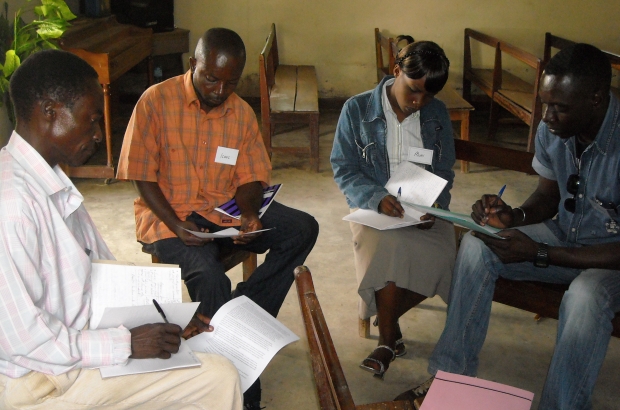- Daily & Weekly newsletters
- Buy & download The Bulletin
- Comment on our articles
Running for Retrak: Week 9
At Retrak, we believe we can transform highly vulnerable children’s lives, preserve families, empower communities and give each of them a voice. To do that, we employ very gifted and skilled staff and we constantly develop them to be able to deliver services of a very high standard.
In February, a newspaper in a country where Retrak has been working proudly reported that they had been cleaning the streets in their city: cleaning the streets of children. Children like Hiram, a seven-year-old boy from a rural area, living for nine months on the streets after losing both parents: rounded up in a lorry and dumped in a detention centre not fit for anyone, let alone a small child.
There are an estimated 100 million street children worldwide. As we approach the International Day of the Street Child on April 12, please consider how you can further help us support children like Hiram and work against these attitudes
Consider for a moment how an organisation like ours can develop staff deliver excellent services to street children and to change attitudes. We cannot say every single pound or euro you donate goes directly to the children: we work with mainly local staff in Uganda, Ethiopia, Kenya and Tanzania and they need to access development opportunities to keep on learning and increase their knowledge and skills to deliver the best care possible. Part of our budget has to pay for that, yet few like to fund it.
What does our staff development programme look like? Retrak staff take the time to carry out family tracing, to research children’s backgrounds, where they have come from, why they are on the streets and how best to get them safely home. To do that well, and ensure children are able to return to a happy, safe environment, they need to fully understand attachment theory and to know the best way to carry out family reintegration. We train our own staff and those working with street children in local government and grass-roots NGOs.
Some of you in your own work will be experts in project management. At Retrak we expect our senior social workers, healthcare workers and educationalists also to be project managers. Sometimes this means we bring in outside expertise to train them, provide travel expenses to allow them to shadow others in larger organisations or meet with a mentor to develop their competency. Sometimes they attend workshops to learn from others working in our sector. We encourage staff to take responsibility for their own learning and to pass on that learning to peers across the organisation.
Our nursing staff are challenged daily to meet the needs of children struggling with general health issues. Basic training means they can cover injuries, coughs and colds and skin complaints, but many of the children we work with live with the symptoms of HIV/Aids, hepatitis or malaria, and staff need to keep constantly up to date with improvements in treatment, medication and preventive care.
A range of leadership and management competencies are developed to ensure we spend donors’ money wisely, ensure good return on investment, measure the impact of all that we do and effectively reach out to more and more children and communities. We have our own leadership and management development programme, allowing staff to access a wide range of learning opportunities. We track every intervention to ensure that the learning translates back into the workplace so that, for example, when interviewed, children report that they experience a strong sense of belonging and security while in Retrak’s care, or when in a family or community setting.
Thanks for reading and for your support. If you would like to know more about supporting learning and development work, please email me



















